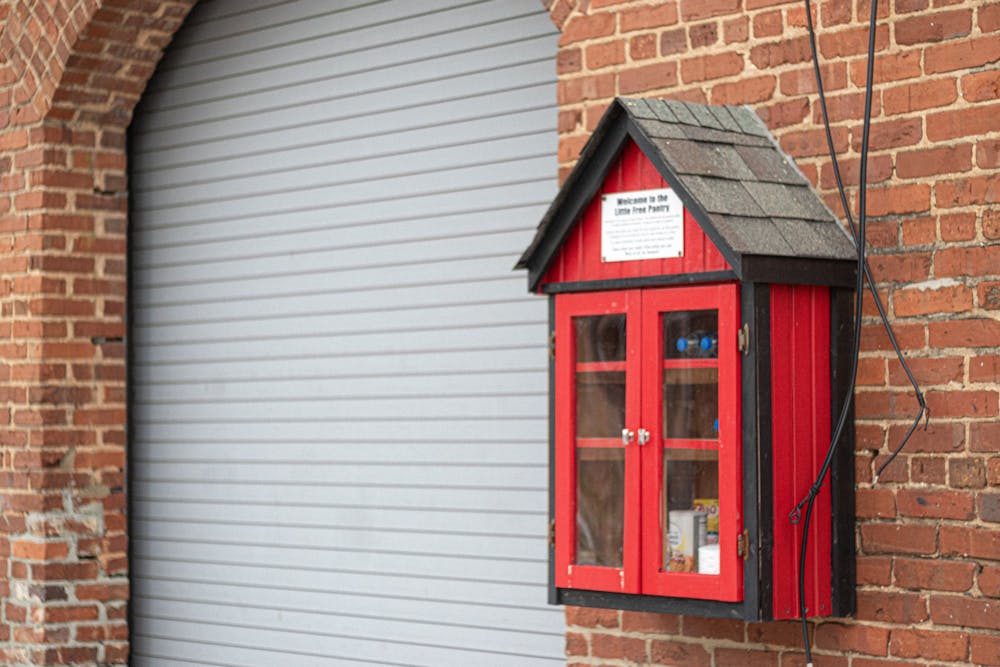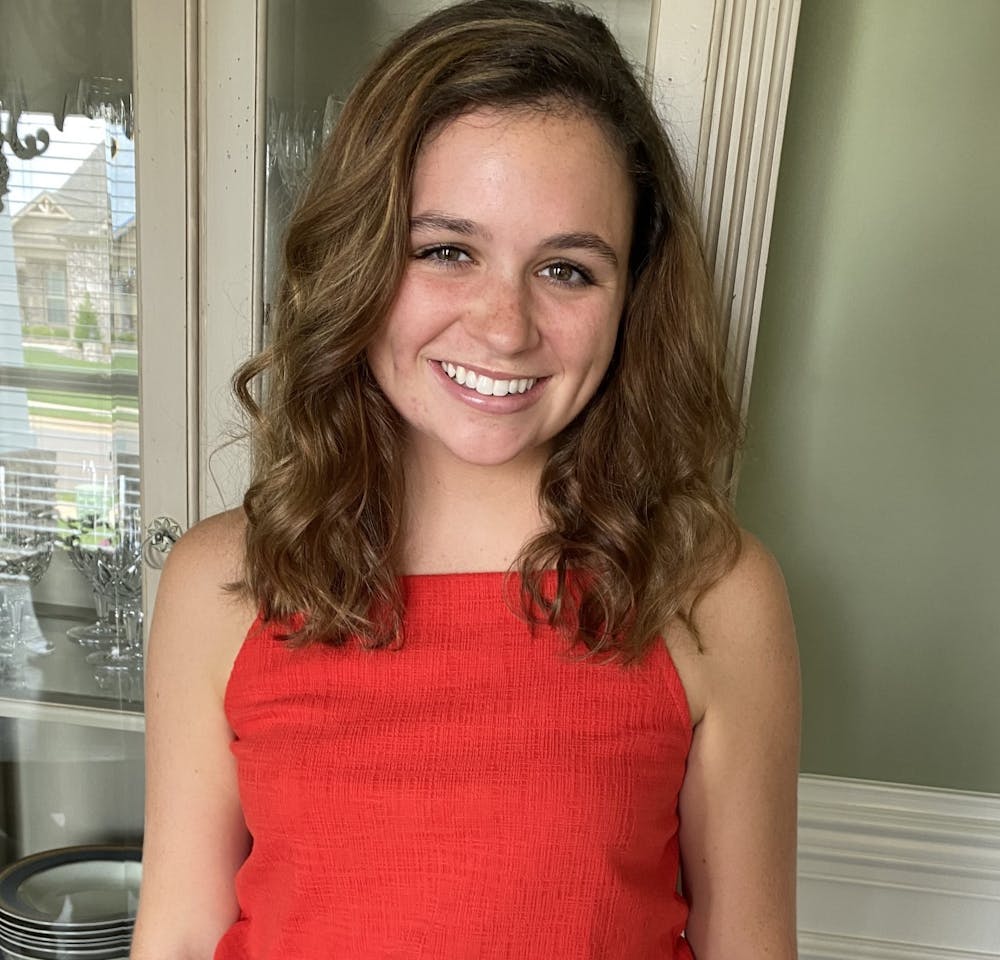With communities becoming more aware of food insecurity, people around the world have started to participate in the Little Free Pantry movement.
Sarah Barnett Gill, owner of Mama Mocha, said a friend in a nearby bodega came to her with the idea of starting a Little Free Pantry in downtown Opelika.
The Little Free Pantry in Opelika has now been open for about two years.
Gill said there was a noticeable need for feeding people in the area as she always saw people roaming around in search of food.
At first, she was unsure how to do it, but after connecting with a friend who already had a box built, they were able to team up.
"I really don't want to police anyone," Gill said. "I wanted it to be a place where anyone could come up to."
The mini pantry has seen a lot of traffic Gill said not only for adults but for kids too.
"The kids know this is a place where they can come and there's no judgment," she said. "It's a safe place for them to come and get something to eat."
Jessica McClard, founder of the Little Free Pantry, said the idea for LFP came from the small free libraries McClard had noticed around her town in Fayetteville, Arkansas. She was inspired by the promotion of literacy and free access to reading materials.
“I thought to myself that if this was the case here, anything could go inside of something like this,” McClard said referring to the free libraries.
McClard knew there was a need for a free pantry where she was living, so she began researching the challenges that those who started the little free libraries encountered and was able to anticipate similar issues.
She used social media platforms, namely Facebook, to leverage her idea and give it attention.
On May 12, 2016, McClard launched her idea into action with the first-ever Little Free Pantry located in Fayetteville, Arkansas.
“It really didn’t happen like I thought it would,” she said. “I thought there would be more givers than shoppers because so many people wanted to help out right away.”
No more than two weeks later, a second pantry had gone up in Fayetteville. This pantry was built by someone whom McClard said she didn’t know. This person didn’t contact her about how to build it or ask for any advice.
“I saw that this person had built their own mini pantry and I immediately liked their idea better,” she said.
At that moment, McClard said she knew this was a concept that could improve version to version.
“The fact that this person felt free to take the idea gave me the thought that this would take off,” McClard said.
By the end of September 2016, the Little Free Pantry was a global movement. McClard received confirmation in August that the movement had reached New Zealand. Since then, it has only continued to grow, she said.
McClard said people decide on their own to build these mini pantries, which then makes them responsible for managing them.
“There’s no overarching org structure sitting at the top of this,” McClard said. “This is just a grassroots movement of people.”
Many people build the pantries and then involve other nonprofit organizations to help them out. Because of this, McClard emphasized how hard it is to map the movement.
“I administrate my own map of the various locations, but I don’t really have the right to publish it because that information doesn’t belong to me,” she said.
If people want to have their Little Free Pantry on the map, they have to manually go onto the LFP website and put the project information in.
“The longer this movement goes on and more decentralized it becomes, the further removed from my map it becomes,” she said.
Since March 2020, LFP has seen a mass amount of growth due to the pandemic, McClard said.
Other names for the LFP include: mini pantry, blessing box, tiny pantry, community food box and karma box.
Allison Shipp, steward in Jackson, Tennessee, and Auburn graduate, started building blessing boxes in her community when she noticed a need during the pandemic.
“Many people lost their jobs or were homeless and I just knew that somebody needed to do something,” Shipp said. “I call it my nudge from above, but I got a nudge from above and thought that somebody needs to be you.”
After reaching out to other people in the community and building some connections, Shipp built six boxes initially. She now has 26 boxes up and running, with ten more in the works.
“There is a stigma around going to food pantries, but with these blessing boxes people can come anonymously,” she said.
Several of the churches and nonprofits in Jackson house boxes as well as some businesses, Shipp said.
“The community has really taken over,” she said. “It is a group effort.”
Hanna Cerasoli, steward located in Vermont, found out about the LFP movement through social media. Cerasoli works in the school system in Vermont, where she said that 50% of the students live in poverty or are homeless.
With the help of a few church committees and her mom, Cerasoli was able to buy tote boxes and food.
On the morning of March 20, Cerasoli put out the boxes of food with a sign next to them that read, “Free food for all, spread the word.” Cerasoli said she and her mom were nervous when they first started, but they knew there was an extreme need for the pantry in their town.
“I went on a walk with my dog around the block and in less than an hour all the food was gone,” she said.
The LFP is available anytime, is open to anyone and allows people to come without feeling bad. This movement also encourages people to bring donations, even if it’s just something small. Cerasoli said she refills the pantry 2-3 times per day.
“A year ago I never could have told you that this is where my life would be,” she said. “It really is a gift and has given me so much.”
Do you like this story? The Plainsman doesn't accept money from tuition or student fees, and we don't charge a subscription fee. But you can donate to support The Plainsman.






